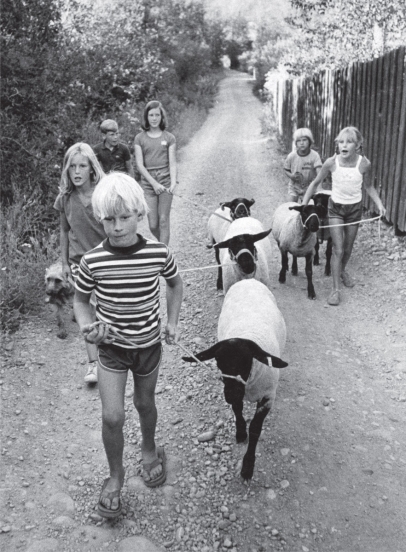The Foundations of 4-H
Even a century ago, people were concerned that public school curriculums lacked instruction in practical life skills. In 1902, these concerns helped spark the creation of 4-H (the name is adopted from the official slogan, “Head, Heart, Hands, Health”), a co-ed national organization with regional clubs designed to support, educate and inspire rural youth. Early 4-H clubs were intended to supplement public school education with agricultural life, providing training in farming and homemaking skills.
In the Roaring Fork Valley, 4-H groups took root during the Great Depression. A call for members for what appears to be the first Aspen-based club was printed in The Aspen Times on April 4, 1935: “All girls between 12 to 15 years of age interested in organizing a girls’ 4-H club are to meet this evening (Thursday) at the home of Miss Doris Sheehan.”
A week later, a report stated that 18 girls were present at the “first official meeting.” In 1936, a headline in the same newspaper read, “Three Clubs Now Function in County: More Urged.” The article outlined how school credit was available to students enrolled in 4-H and urged club expansion, stating, “all boys and girls residing in districts where there are enough eligible to form a 4-H Club are encouraged to do so, and to pick their own leaders.” By 1939 Colorado’s 4-H membership surpassed 12,000 youth.
By 1980, local 4-H clubs were supported by the County Extension, but primarily taught by dedicated volunteers or “Project Leaders” who offered instruction in cooking, animal husbandry, leathercraft, canning, gardening, photography and other experiential courses. Sadly, in the mid-’80s, the Pitkin County Fair ceased operation because the nearest County Extension office shifted focus to more agriculturally relevant communities in the Colorado River Valley.
While there are no longer active 4-H clubs in the Roaring Fork Valley, various local nonprofits, school groups and summer camps continue to connect youngsters with their rural roots by offering hands-on instruction in traditional agricultural and homemaking skills.
Edible Traditions is produced by the Aspen Historical Society. For access to the full online archives, including more than 10,000 historic images, visit AspenHistory.org or call 970.925.3721.




